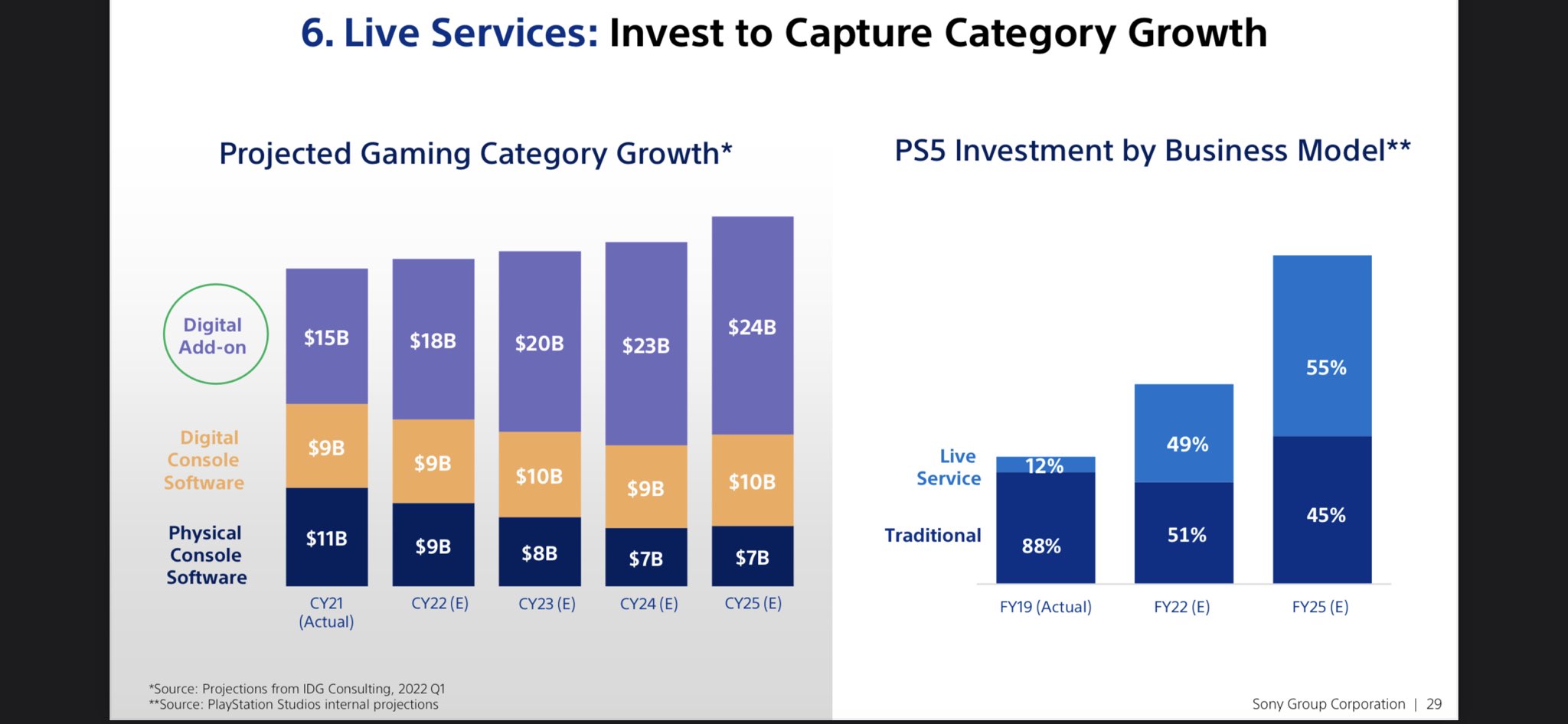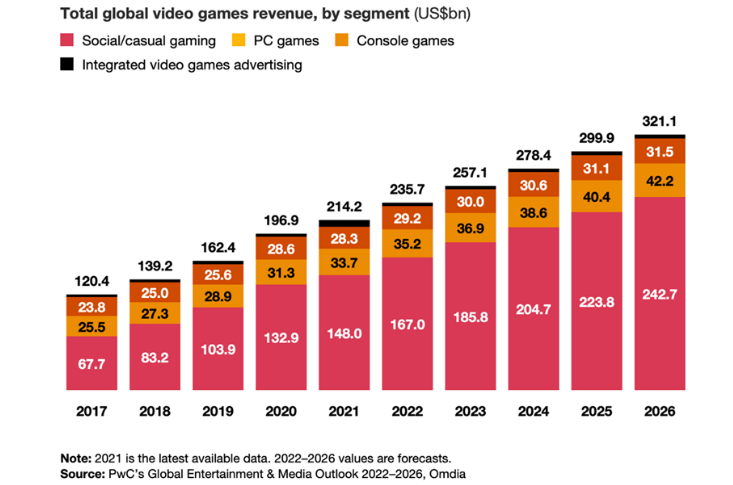I wonder if you could share with us which year the console/PC market shifted to the GAAS era? What year do you think the majority of investment went towards GAAS?
There's no specific year, as I mentioned companies grtadually kept investing more in GaaS as they saw more GaaS being super successful or as they saw that addons or mobile kept epresenting a bigger portion of the market year after year.
Facebook started skyrocketed browser games starting in 2008 or so with some pre-Farmville games. In a couple years after the iPhone was released (2007-2009) mobile games made a transition from paid games to free demo + unlockable full game having an IAP to buy the full game, to having multiple IAPs, to make them consumables to integrate the proper F2P in-game economies, features and techniques from browser games.
They kept growing and these casual/social games too many years to gradually migrate from from browser to mobile (in free reports it can be seen in Newzoo's charts, who over years tracked browser gaming separated from the other PC games), making mobile bigger.
From a
World Economic Forum 2022 article with PwC / Omdia data:
Pelham Smithers (2020), this shows a few of the important games:
(2022):
App Annie (now data.ai) / IDC chart from 2021:
Newzoo's 2016 Global Games Market report (notice casual webgames + phone + tablet is 42% of the revenue, and we should add there MMO plus the other console and PC other GaaS):
vs 2023 (casual PC browser games kept decreasing as migrated to mobile, they no longer appear as dedicated version in the 2024 edition for the first time)
(Please note that the different graphs include or not different things and are measured in different points in time)
Then there's the success of many others I mentioned like Second Life (2003), World of Warcraft (2004), Dungeon Fighter Online (2005), Little Big Planet (2009), LoL (2009), Minecraft (2011), GTA Online (2013), CoD and FIFA (I don't remember which exact year they started with the GaaS stuff) etc.
Big gaming companies always did bet on the type of games that they saw working very well in the market. So as they saw mobile games and addons/GaaS getting a bigger market share, they invested more in mobile games or GaaS for console / PC trying to replicate the success of these other big hits. Some did it before, some did it later.
Ocasionally some companies started to report their gaming revenue first separating mobile from console and PC, and later separating addons revenue from game sales revenue.
Normally they didn't report how their investment was split between non-GaaS vs GaaS, or SP vs MP. SIE made an exception because even if they had many attempts in the past in the MP and GaaS with different levels of success, by 2016-2018 aprox they saw that MP and GaaS were gaming and dominating even console, that their SP AAA games were getting too expensive and that in addition to expand to MP & GaSS they needed to also expand to PC & mobile, where MP & GaaS are even more important.
So they started to prepare their expansion first to PC, MP & GaaS and later (but starting to work there) to mobile too. They saw that they were late to the party in all these fronts compared to the other publishers, so prepared a particularly big investment effort in all these different areas at the same time, and as such they had to explain it and justify it to their investors, resulting in the charts you shared.
SIE had to make that exceptional effort to be more in line with all the other top publishers in these areas, who in most cases already had several important MP, GaaS hits plus an important presence in PC and mobile. Sony already made some previous efforts via SIE or via other Sony branches, but SIE back then didn't have a big and steady presence there and had to correct it because as explained in their graph GaaS and particularly mobile keep becoming more and more important.
P.S.: Sony didn't mention it but the logical step for the long term is to transition from paid only -> going GaaS -> going F2P. Plus also console only -> console + PC -> console + PC + mobile. So in the long term, (many years from now) we'll see Sony's GaaS titles having a Genshin Impact and similar format: F2P games you can play on console, PC or mobile. While still having the traditional non-GaaS titles because remember the GaaS/PC/mobile investments are on top of their current SP non-GaaS games, whose investment even if less also grows.
You're tired of avoiding the truth. I would too if avoiding the truth was something that interested me. It has never, and will never.
Bullshit, I shown you a ton of factual, objective data that debunks your nonsensical claim of companies not meaningfully investing in GaaS pre-2017, when there were tons of them from many top companies and many of them were huge hits. And you keep rejecting it because of potatoes.
Sony having to make an exceptional and unusually big push to grow in the MP/GaaS/PC/mobile area because they are late to these parties further proves it: most of the other top players already were there before them.
Sony had 12 in the pipeline more than half already canned and concord lost them hundreds of millions with Fairgames to likely repeat that.
Sony didn't cancel half of them. What they said was that half of the ones still not released were secured to reach their March 2026 deadline and the other ones were still being reviewed to see if were going to make it or not. Later 3 of them got canned, got replaced by other ones and the 2026 dealine was removed. As of now apparently they will be:
- Gran Turismo (big success)
- MLB (big success)
- Firewall (tanked)
- Helldivers (major success)
- Destiny (major success)
- Concord (tanked)
- Marathon
- Horizon (despite having this GaaS MP game, a separate Horizon 3 non-GaaS SP game is also in the works)
- Fairgame$
- Bend's new IP *
- Gummybears (codename of the new IP incubated at Bungie) *
- Ex-Deviation's devs game *
* = Likely to not meet the initial March 2026 deadline
Some of the "cancelled" games you mentioned were projects in very early stages not greenlighted, so they never entered production. Meaning, there was no game/production to cancel.
Sony will still have the dozen IPs with GaaS titles released, but after March 2026. Some will tank and some will (or already have been) major hits or just successful games.




:format(webp)/cdn.vox-cdn.com/uploads/chorus_asset/file/24677519/Screenshot_2023_05_23_at_5.28.54_PM.png)








